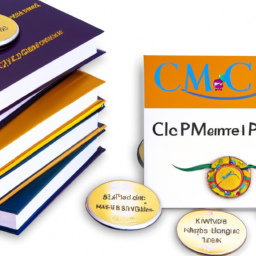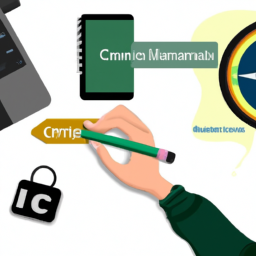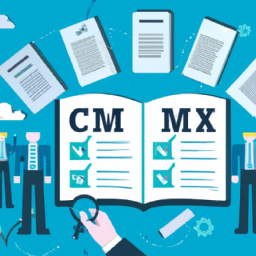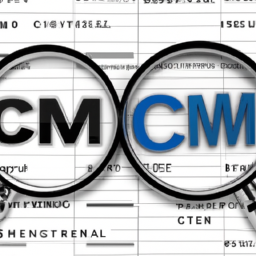Are you ready to ace the CMI exam? Look no further!
In this article, we’ll guide you through the 7 crucial topics you need to master.
From understanding the CMI exam format to delving into key concepts in strategic management, effective leadership, business ethics, financial management, marketing strategies, and operations management, we’ve got you covered.
Get ready to conquer the exam and take your career to new heights!
Key Takeaways
- Understanding the CMI Exam Format and the types of questions is crucial for effective preparation.
- Strategic Management covers key concepts such as setting long-term goals, leveraging competitive advantage, and aligning strategies with the changing business environment.
- Effective Leadership and Team Management require effective communication, collaboration, conflict resolution, and developing skills in these areas.
- Business Ethics and Corporate Governance emphasize compliance, transparency, ethical leadership, and responsible business practices to protect stakeholders’ interests and reputation.
Topic 1: Understanding the CMI Exam Format
To ace the CMI exam, you need to understand the format. This includes the types of questions and the time constraints.
The exam structure consists of multiple-choice questions, short answer questions, and case study analysis. It is important to familiarize yourself with each question type and practice answering them within the given time limits.
Effective time management is crucial during the exam. This ensures that you allocate enough time for each section and complete all questions.
By understanding the exam format and managing your time effectively, you will be better prepared to tackle the challenges of the CMI exam.
Now, let’s move on to the next section. Here, we will discuss key concepts in strategic management.
Topic 2: Key Concepts in Strategic Management
Understand the key concepts in strategic management so you can successfully navigate the CMI exam.
Strategic planning is a crucial aspect of any organization’s success. It involves setting goals, analyzing the internal and external environment, and developing strategies to achieve a competitive advantage.
To help you grasp the key concepts, here are three important points to remember:
-
Strategic planning involves formulating long-term goals and objectives for an organization.
-
Competitive advantage refers to the unique strengths and advantages that a company has over its competitors.
-
Strategic management involves the ongoing process of implementing and adjusting strategies to align with the changing business environment.
Topic 3: Effective Leadership and Team Management
Effective leadership and team management play a vital role in the success of any organization. As a leader, it is crucial to master the art of effective communication and conflict resolution.
By communicating clearly and consistently, you can ensure that your team understands their roles and responsibilities, and can work towards common goals. Additionally, effective communication fosters trust and collaboration among team members, leading to increased productivity and innovation.
Conflict resolution is another important skill to develop as a leader. By addressing conflicts promptly and impartially, you can create a positive work environment where team members feel heard and valued. This not only improves morale but also minimizes disruptions and enhances overall team performance.
As you prepare for the CMI exam, remember to focus on developing your leadership and team management skills, particularly in the areas of effective communication and conflict resolution.
Topic 4: Business Ethics and Corporate Governance
Business ethics and corporate governance are essential for maintaining trust and integrity within an organization. To ensure ethical practices and effective governance, you must understand the following:
-
Compliance: Adhering to laws, regulations, and ethical standards is crucial for upholding the organization’s reputation and avoiding legal consequences.
-
Transparency: Open and honest communication fosters trust among stakeholders, allowing for better decision-making and accountability.
-
Ethical leadership: Leaders must set a positive example, promoting ethical behavior and creating a culture of integrity throughout the organization.
By mastering these aspects of business ethics and corporate governance, you can contribute to a responsible and sustainable business environment. Upholding ethical standards not only protects the interests of stakeholders but also helps to build a strong reputation and competitive advantage.
Topic 5: Financial Management and Analysis
Financial management and analysis play a vital role in understanding an organization’s financial health and making informed decisions. By conducting financial forecasting and ratio analysis, you can predict future financial trends and evaluate a company’s performance.
Financial forecasting involves estimating future revenue, expenses, and cash flows, enabling you to plan and allocate resources effectively. Ratio analysis, on the other hand, allows you to assess a company’s liquidity, profitability, and efficiency by comparing key financial ratios.
These tools provide valuable insights into a company’s financial position, helping you identify areas for improvement and make strategic decisions. Understanding financial management and analysis is essential for any business professional, as it equips you with the knowledge and skills necessary to navigate the complex world of finance.
With a solid foundation in financial management, you can now explore the next topic: marketing strategies and consumer behavior.
Topic 6: Marketing Strategies and Consumer Behavior
In this section, you will explore the buyer decision-making process, target market segmentation, brand loyalty, and perception.
Understanding how buyers make decisions can help you develop effective marketing strategies.
By segmenting your target market, you can better tailor your products and messages to specific customer groups.
Building brand loyalty is crucial for long-term success, and perception plays a key role in shaping consumers’ attitudes and behaviors.
Buyer Decision-Making Process
Understanding the buyer decision-making process is essential for excelling in the CMI exam. As a marketer, it is crucial to grasp how consumers make their purchasing decisions. Here are three key points to help you navigate this topic effectively:
-
Buyer Decision Making Process: Familiarize yourself with the five stages of the buyer decision-making process. These stages include problem recognition, information search, evaluation of alternatives, purchase decision, and post-purchase behavior. Understanding each stage will enable you to craft effective marketing strategies.
-
Brand Positioning: Learn the importance of positioning your brand in the minds of consumers. Effective brand positioning helps create a unique identity for your product or service, setting it apart from competitors.
-
Differentiation: Explore strategies to differentiate your brand from others in the market. By highlighting unique features, benefits, or values, you can attract and retain customers.
Target Market Segmentation
Now that you understand the buyer decision-making process, it’s time to delve into target market segmentation.
This topic is crucial for the CMI exam, as it focuses on identifying and categorizing specific groups within your larger market.
To effectively reach your customers, you need to conduct thorough target market research. This involves gathering data on demographics, psychographics, and behavioral patterns of your potential customers.
By analyzing this information, you can develop market segmentation strategies that allow you to tailor your marketing efforts to each specific segment. These strategies may include creating personalized messaging, developing targeted advertising campaigns, or offering specialized products or services.
Understanding target market segmentation is essential for any marketer to effectively reach and engage with their audience.
Brand Loyalty and Perception
To effectively engage with your audience, it’s important to analyze brand loyalty and perception. Understanding how your customers perceive your brand and their level of loyalty can greatly impact your business success. Here are three key points to consider:
-
Brand Perception:
Your brand perception refers to how your customers view and interpret your brand. It includes factors such as your reputation, quality, and values. By understanding how your brand is perceived, you can make informed decisions on how to improve and align your brand image with your target audience. -
Customer Loyalty:
Customer loyalty is crucial for any business as it leads to repeat purchases, positive word-of-mouth, and increased customer lifetime value. Building strong relationships with your customers through excellent customer service, personalized experiences, and loyalty programs can help foster loyalty and increase customer retention. -
The Impact:
Brand perception and customer loyalty go hand in hand. A positive brand perception can lead to increased customer loyalty, while negative perceptions can result in lost customers and damage to your brand reputation. By actively managing and monitoring brand perception and customer loyalty, you can make strategic decisions to enhance customer satisfaction and drive business growth.
Topic 7: Operations Management and Supply Chain Optimization
To excel in the CMI exam, it is important to review the key concepts of operations management and supply chain optimization. Understanding supply chain optimization techniques and inventory management strategies is crucial for effective operations management.
Supply chain optimization involves analyzing and improving the flow of goods and services from suppliers to customers. This includes optimizing processes such as demand forecasting, production planning, and distribution.
Inventory management strategies focus on maintaining the right amount of inventory, reducing costs, and minimizing stockouts. Key techniques include just-in-time (JIT) inventory, economic order quantity (EOQ), and ABC analysis.
Frequently Asked Questions
What Are the Eligibility Criteria to Appear for the CMI Exam?
To appear for the CMI exam, you need to meet certain eligibility criteria. The eligibility criteria determine if you have the necessary qualifications and experience to take the exam.
The exam duration and format are important factors to consider. The exam duration and format refer to the length of the exam and how it is structured. Understanding these aspects will help you prepare effectively for the CMI exam.
How Long Is the CMI Exam and How Many Questions Are There?
The CMI exam is a challenge you need to prepare for. It’s crucial to know the duration and question format to ensure success.
Suspense builds as you wonder: How long is the CMI exam? How many questions are there?
Well, the exam typically lasts for several hours and consists of multiple choice questions.
Mastering the crucial topics for the CMI exam will give you an edge, so get ready to conquer it!
Are There Any Prerequisites or Recommended Study Materials for the CMI Exam?
To prepare for the CMI exam, it’s important to consider any prerequisites and recommended study materials.
First, know if there are any requirements or prior knowledge needed before you can even start studying. This will help you plan your preparation effectively and allocate enough time to cover any necessary prerequisites.
Second, having access to recommended study materials can greatly enhance your understanding and increase your chances of success. These materials are specifically chosen to align with the exam content and provide comprehensive coverage of the topics you need to know.
To ensure you are fully prepared, make sure to check the official CMI resources for any prerequisites and recommended study materials. This will help you avoid any surprises and give you a clear roadmap for your exam preparation journey.
What Is the Passing Score for the CMI Exam?
To pass the CMI exam, you need to meet the passing score requirement. Before diving into the 7 crucial topics, it’s important to understand what score you need to achieve.
The passing score is determined by the CMI and may vary depending on the exam. Make sure to review the exam requirements thoroughly to ensure you’re prepared to meet the passing score.
Now, let’s explore the 7 crucial topics you should master for the CMI exam.
Can the CMI Exam Be Taken Online or Is It Only Available at Designated Testing Centers?
The CMI exam can be taken online or at designated testing centers. You have the option to choose whichever method is more convenient for you.
If you prefer the flexibility and convenience of taking the exam from the comfort of your own home or office, the online availability is a great option.
On the other hand, if you prefer a traditional testing environment, you can opt to take the exam at a designated testing center.
Conclusion
Congratulations on finishing this article! You’ve covered all the crucial topics needed for success in the CMI exam.
Now, it’s time to put your knowledge into practice and ace that exam. Remember, the CMI exam is like a puzzle – each topic fits together to create a complete picture of management.
So, keep studying, stay focused, and soon you’ll be a master of strategic management, leadership, ethics, finance, marketing, and operations.
Good luck on your journey towards becoming a certified management professional!





















